FFplus: launch of the second Open Call for Innovation Studies |
FFplus Open Call 2 - T2 addresses the needs of SMEs and Start-ups proficient in generative AI and HPC for large- to extreme-scale computing resources. The strategic objective is to facilitate and strengthen the technological development of European SMEs in the area of generative AI. The participating SMEs and Start-ups will be supported in enhancing their innovation potential by leveraging new generative AI models, such as Large Language Models (LLMs), building on their existing expertise, application domain, business model and potential for expansion.
Who can Apply to the Open Call?
- SMEs and startups from Europe and Horizon Europe-eligible countries.
- Research organisations can be part of the consortium as supporting organisations to SMEs.
- Consortia of 1–3 partners (including one SME and up to 2 supporting partners such as SMEs, larger organisations or public/research institutions).
- Funding available: up to €300,000 per proposal (for consortium with supporting partners), up to €200,000 for the main participant SME.
Deadline date :
25 February 2026 17:00 (Brussels time), or when 250 proposals have been received (whichever point in time is earlier)
 More information here: More information here: 
|
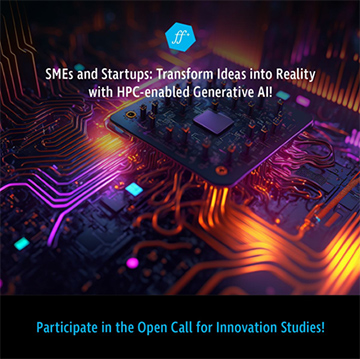 |
 |
POP3 Webinar – Boost Your HPC Application Performance |
Join us for an exclusive webinar to learn how the POP3 Centre of Excellence, funded by EuroHPC JU, provides free services to help European organizations analyze and optimize their parallel HPC applications.
POP3 connects you with top European experts who offer:
✔️ In-depth performance assessments of parallel codes
✔️ Optimization strategies to improve scalability and efficiency
✔️ Energy and cost reduction techniques
Don't miss this chance to boost the productivity and competitiveness of your HPC applications — for free.
Date: June 23, 2025 11:00 AM CEST
|
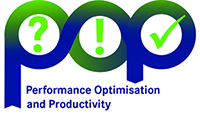 |
 REGISTER HERE! REGISTER HERE! 
|
 |
POP-3 : Application for free services |
The Performance Optimisation and Productivity Centre of Excellence in HPC provides performance optimisation and productivity services for academic and industrial code(s) in all domains.
Enhance your code's performance with free expert evaluations from POP3.
Our team identifies bottlenecks, suggests improvements, and provides optional services like proof-of-concept development and energy efficiency assessments to maximise your code's efficiency and impact.
By leveraging POP3, European organisations across all sectors (industries, research, academia) can significantly enhance their operational efficiency, leading to substantial financial gains.
Boost your code's performance with POP3!
Get more information and apply now to maximize your impact! |
 |
 Read more Read more 
|
 |
CASTIEL-2: 10th "Code of the month": EoCoE proposal on Alya-Wind - September 18, 11AM to 12PM |
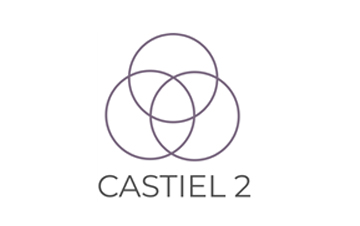 |
Alya is a high-performance computational mechanics finite element code that solves complex coupled multi-physics BSC problems, mostly from the engineering realm. Alya uses a Fractional Step scheme to solve the incompressible Navier Stokes equations. A Runge Kutta explicit time discretization is used for temporal discretization.
Alya has been used by Iberdrola for wind resource assessment for more than ten years.
Alya is a relatively mature code that is used in several CoEs. Moreover, it is part of the Unified European Applications Benchmark Suite for CPU and GPU. It has been tested on most European Supercomputers with scalability results up to more than 100.000 cores.
During EoCoE-II, in collaboration with the FAU node-level optimization team Alya's GPU implementation has been significantly optimized. Moreover, excellent weak scalability has been obtained using the Algebraic Multigrid solve PSCToolkit up to 16000 million elements.
During the last two years, the Large Scale Computational Fluid Dynamics group at BSC has been developing a new high-order spectral element code, named SOD2D. The use of high-order elements has provided superior accuracy which is critical for scale-resolving simulation. The code is fully open source and has opened the way to new wind energy collaborations with Ocean Winds, a joint venture between EDP and Engie.
The Large Scale Computational Fluid Dynamics group at BSC has a strong interest in collaboration with real-world users. While this talk will focus mainly on wind applications, examples from other fields such as automotive and aircraft aerodynamics, where BSC has collaborated with SEAT and Airbus, will also be presented. |
 |
TERATEC interviewed for the EXCELLERAT project! |
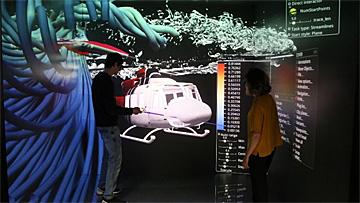 |
In an interview about Horizon Results Booster's support to European projects, our Project Manager Samir Ben Chaabane presented the European Centre of Excellence in Engineering (EXCELLERAT) and its aim to bring together a broad range of services, tools and expertise to support industrial users, technology providers, academics, developers and engineers. This project benefited from HRB's support in analysing key exploitable results and offering context for improving them! |
 |
FFplus: Launch of the FFplus Calls for Projects |
FFplus (successor to the Fortissimo projects) is a European initiative highlighting the adoption of high-performance computing (HPC) and artificial intelligence (AI) by SMEs and startups across Europe, showcasing the business benefits and impacts of adopting HPC and AI in real business models.
During the project's duration, SMEs and startups will be supported by six open calls to fund experiments (type 1) and innovation studies (type 2).
The first two calls for projects have been launched.
The experiments will focus on the adoption of High-Performance Computing (HPC) by SMEs to solve specific issues faced by SMEs that have never used intensive computing services or have never had the experience.
On the other hand, the innovation studies will support European SMEs and startups already active in the field of generative AI technology but lacking the necessary computing resources to scale up.
Selected candidates will receive funding and support from FFplus to carry out these sub-projects.
More information can be found at the link: https://www.ffplus-project.eu
Submission deadline: September 4, 2024, at 5:00 PM (Brussels time).
|
 |
 Read more Read more 
|
 |
CASTIEL-2 :Seventh "Code of the month" : GROMACS by BioExcel |
GROMACS is a molecular simulation suite with tens of thousands of users worldwide in both academia and industry.
Biomedical applications (biomolecules) are likely the most common, but use of GROMACS is far from limited to that.
It is also popular in other areas that require atomistic simulations such as polymer physics and (nano)flow
13/03 from 11:00 to 12:00 CET |
 |
 Register Register  |
 |
|
|
CASTIEL-2: Code of the Month vol.19 – POP3 |
 |
The BSC performance tools and their role in POP3 services
In this talk, we will explore the performance-analysis ecosystem developed at BSC, featuring the Extae tracing framework, the Paraver visualization tool, and the TALP lightweight profiler.
BCS will introduce the core capabilities of each tool and demonstrate how, when used together, they provide deep insight into the behavior of HPC applications.
We will also discuss how this toolset supports the performance services delivered to European HPC codes within the POP3 project. These services focus on large-scale applications and aim to identify key inefficiencies and bottlenecks that hinder parallel scalability.
Through real examples, we will show how the POP3 assessments guide developers towards more efficient and scalable execution on modern HPC architectures.
November 26 at 11am
 Register here! Register here! 
|
 |
CASTIEL-2: Code of the Month vol.17 –Gysela, by EOCOE |
 |
Fusion research is in full swing. Various concepts have been proposed for confining extremely hot plasmas (several hundred million degrees) long enough to produce energy from fusion reactions. Among these concepts, the tokamak is currently the most promising and has been chosen for the international ITER project currently under construction on the Cadarache site in the south of France. The success of this project depends in particular on understanding and predicting the turbulent transport of particles and heat within the plasma.
Tokamak plasmas are not very collisional and therefore require a kinetic description. In addition, plasma confinement increases sharply with the ratio between the size of the machine and the size of the turbulent structures. However, a good description of the confinement requires simulation of all the scales present. So the numerical cost of simulating a tokamak plasma is significant and increases with its quality.
The GYSELA code is used to model turbulent transport in tokamak plasmas. We will look at the capabilities of the current code through a few examples and discuss the limitations of the code. We will see that the development of a new code is necessary, both to improve the physical model and to increase the size of the simulated plasmas. This new code will make it possible to use Exascale supercomputers that will be needed to model ITER plasmas.
25th June 2025 @03:00 PM CEST
 Register here! Register here! 
|
 |
CASTIEL-2: Code of the Month vol.15 –EoCoE-Parflow |
 |
ParFlow is a parallel, integrated hydrology model that simulates spatially distributed surface and subsurface flow, as well as land surface processes including evapotranspiration and snow.
In EoCoE, Parflow is used as groundwater modelling framework, combined with the hydropower infrastructure management system HYPERstreamHS to provide high-resolution hydrological forecasting at the continental scale.
Wednesday, March 26th at 11.00 AM CET.
 Register here! Register here! 
|
 |
CASTIEL-2: Code of the Month vol. 13 – Plasma PEPSC CoE |
 |
The 13th Code of the Month webinar will take place on January 29 at 11:00.
Abstract: The Plasma-PEPSC Center of Excellence (CoE) focuses on advancing plasma simulations through optimization for exascale computing. This presentation reviews the CoE's four core simulation codes' computational features, scalability, and GPU support: BIT1 for plasma-material interaction, GENE for fusion energy, PIConGPU for laser-plasma interaction, and Vlasiator for space physics. Each code employs advanced methodologies to address domain-specific challenges, including particle-in-cell, gyrokinetic, and hybrid-Vlasov approaches. We will examine their performance on modern HPC architectures, highlighting optimization strategies for load balancing, memory usage, and hardware acceleration to achieve efficient and scalable plasma simulations.
 Register here Register here 
|
 |
CASTIEL-2: Code of the Month vol. 11 – (CEEC CoE ) |
 |
Codes: FLEXI, GALAEXI (CEEC / Institute of Aerodynamics and Gasdynamics (IAG), University of Stuttgart)
FLEXI/GALÆXI: A High-Order, Highly Efficient HPC Solver for Compressible Multiscale Flows
Presenter: Anna Schwarz and Andrea Beck
Wednesday 30.10. @11:00 |
 |
CASTIEL-2: 8th "Code of the month" : FALL3D and OpenPDAC by CHEESE CoE |
 |
The codes FALL3D and OpenPDAC are able to simulate different phenomena associated with explosive volcanic eruptions. FALL3D models atmospheric consequences of volcano outbreaks including the dispersal and sedimentation of particles and ashes. After the outbreak of Cumbre Vieja in autumn 2021, CoE ChEESE's related urgent computing services have been used to advise the local authorities of La Palma e.g. on rerouting flights or issuing warnings or confinements for the population. OpenPDAC simulates phenomena (pyroclastic flows, ballistic ejecta) associated with phreatic explosions and occurring at a local scale. These kind of eruptions represent an important hazard, as testified by the recent events at Ontake (Japan) and White Island (new Zealand), and in the framework of the ChEEse project the code OpenPDAC will be used for a first assessment of hazard from phreatic explosion at Vulcano island (Italy).
Wednesday, May 29th at 11am-12 CEST |
 |
POP-3 : Performance Optimisation and Productivity - Le Centre d'Excellence sur l'Optimisation des Performances et la Productivité |
Teratec is a partner in the European POP3 (Performance Optimisation and Productivity) project as part of Horizon Europe, the ninth framework program following Horizon 2020 and supported by EUROHPC-JU. This center of excellence brings together the best HPC experts at the European level, providing free analysis and optimization services for high-performance computing applications developed and/or used by businesses, academics, and research centers across Europe.
For Teratec, this project offers an additional opportunity to support its members, as well as all European organizations (industries, research centers, laboratories), by enabling them to optimize their applications to increase efficiency, which generally leads to a significant return on investment.
By way of illustration, POP has already achieved remarkable goals, and here are some "Success Stories":
• Performance analysis by POP experts improved the performance of a CFD application by up to six times.
• Thanks to the efforts of POP experts, the execution speed of a magnetic materials study code was increased by 46%.
• The intervention of POP experts reduced the execution time of parallel simulations of astrophysical fluid dynamics code by 40%.
To apply, please visit: https://pop-coe.eu/request-service-form
For more information, please contact: saber.zribi@teratec.eu
samir.ben-chaabane@teratec.eu
|
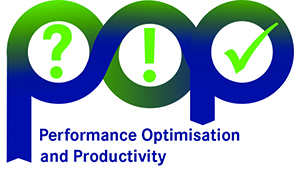 |
 Read more Read more 
|
 |
| Webinars organised by the CC-FR Competence Centre |
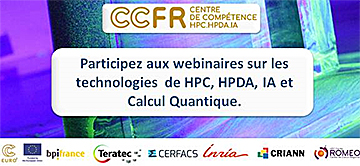
Register for webinars dedicated to HPC, HPDA, AI and Quantum Computing technologies
The CC-FR Competence Centre organises technical webinars for industrialists and academics who want to enhance their theoretical and practical knowledge in the field of HPC, HPDA, AI and quantum physics.
Register for upcoming webinars!
|
 |
| The EUMaster4HPC: European Masters in HPC |
| EUMaster4HPC is a European consortium funded by the EuroHPC Joint Undertaking, with the aim of designing and implementing the first European HPC Master. |
 |
 Read more Read more  |
 |
TERATEC interviewed for the EXCELLERAT project!
|
Excellerat brings together the European expertise needed to create a Centre of Excellence in industrial engineering with a wide range of services, paving the way towards exascale, as part of the HPC strategy driven by EuroHPC. To these ends, Excellerat's first pahse, which started in December 2018 for a duration of 36 months, was based on six reference applications: Nek5000, Alya, AVBP, TPLS, FEniCS and Coda. These codes are used in industry and are promising candidates for execution on exascale demonstrators, pre-exascale systems and exascale machines. The Excellerat Centre of Excellence has just been extended from January 2023 for a further 4 years. |
 |
 Read more Read more 
|
 |
|
